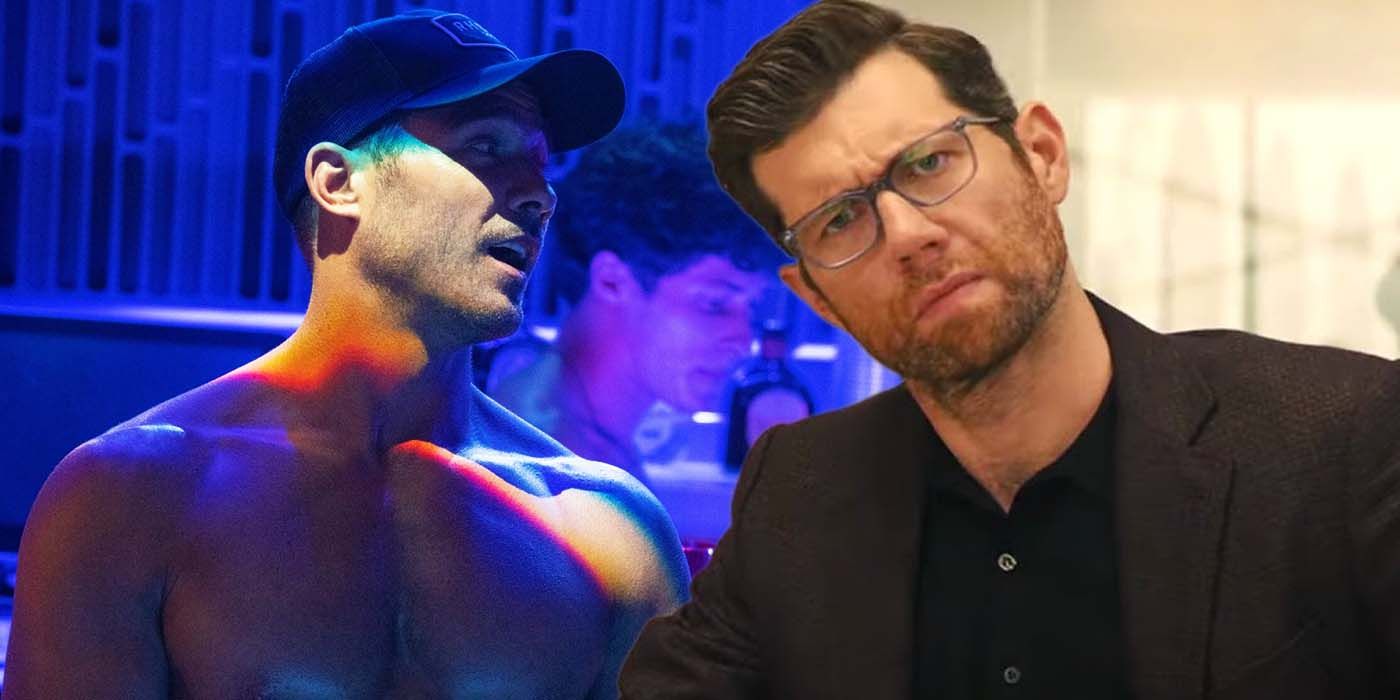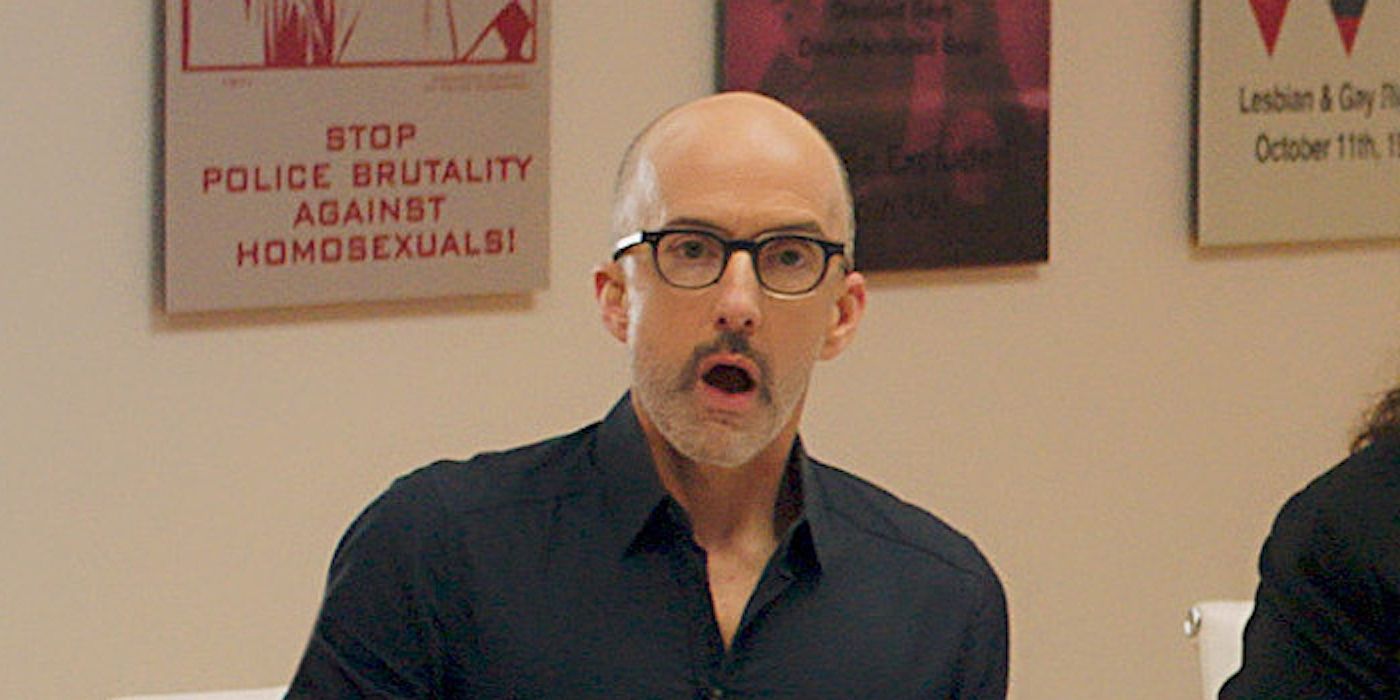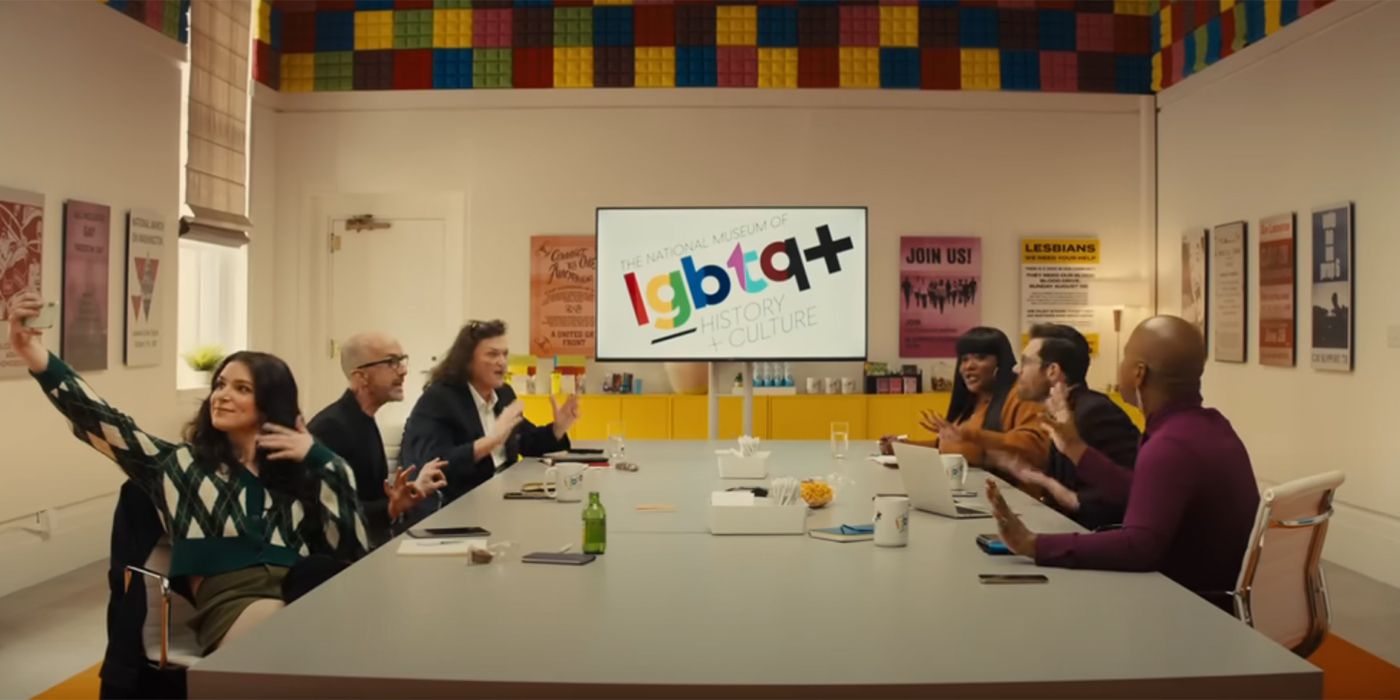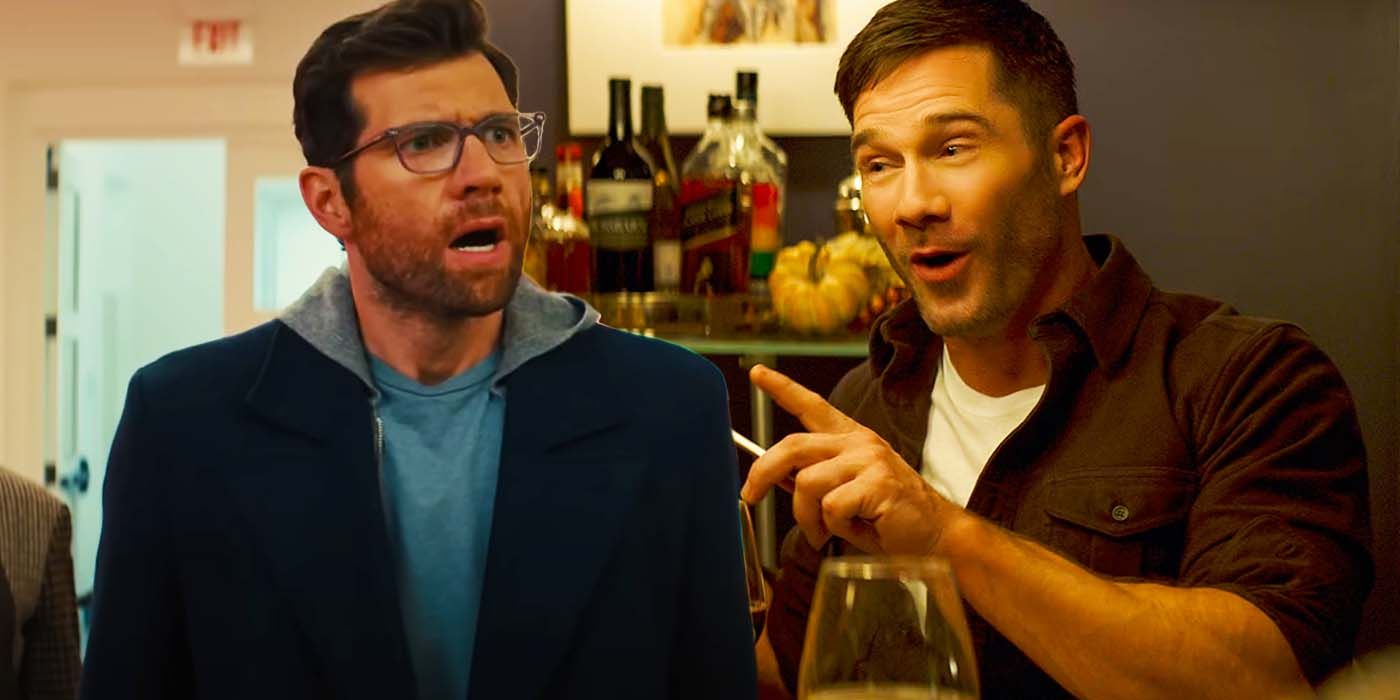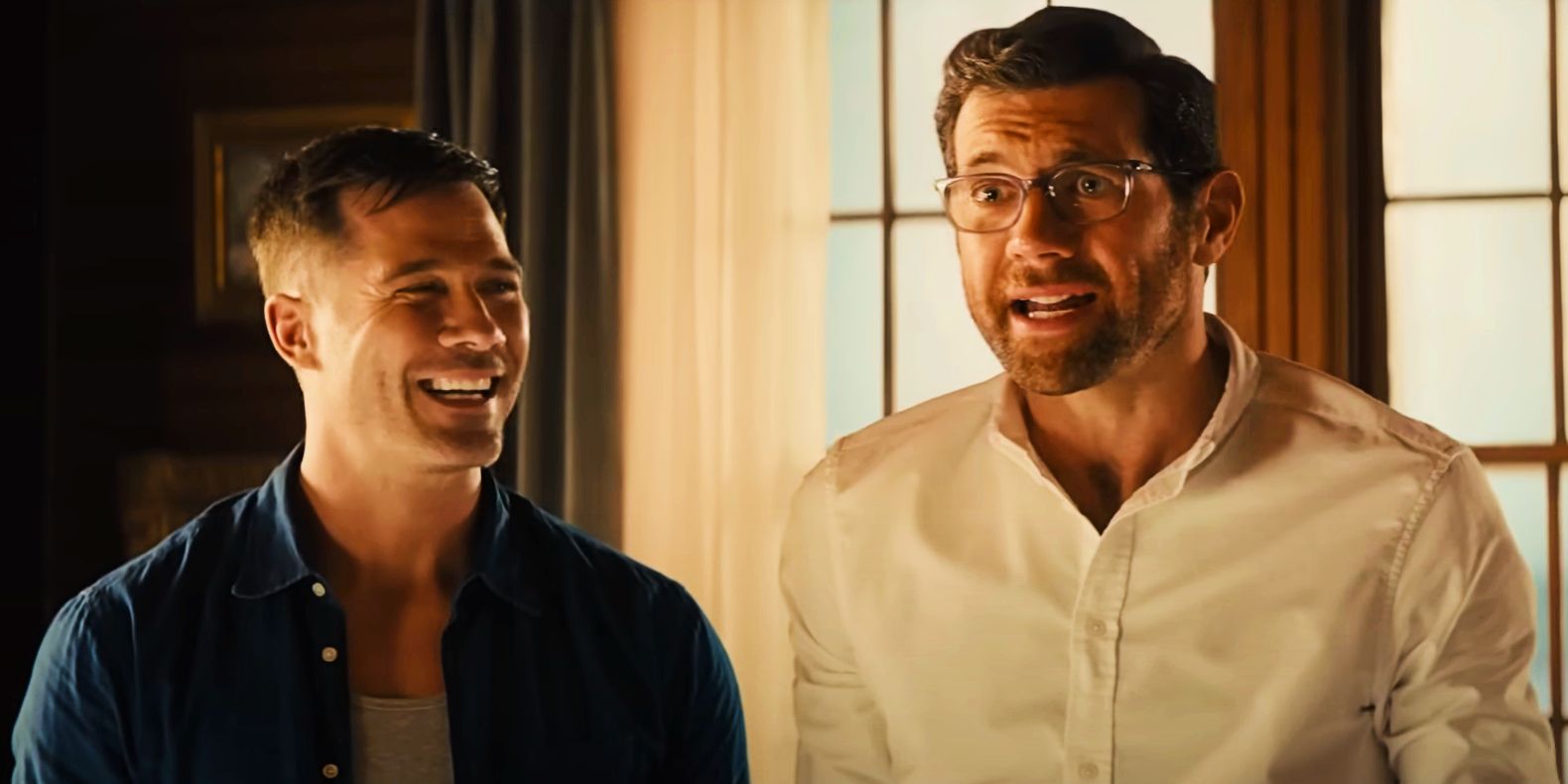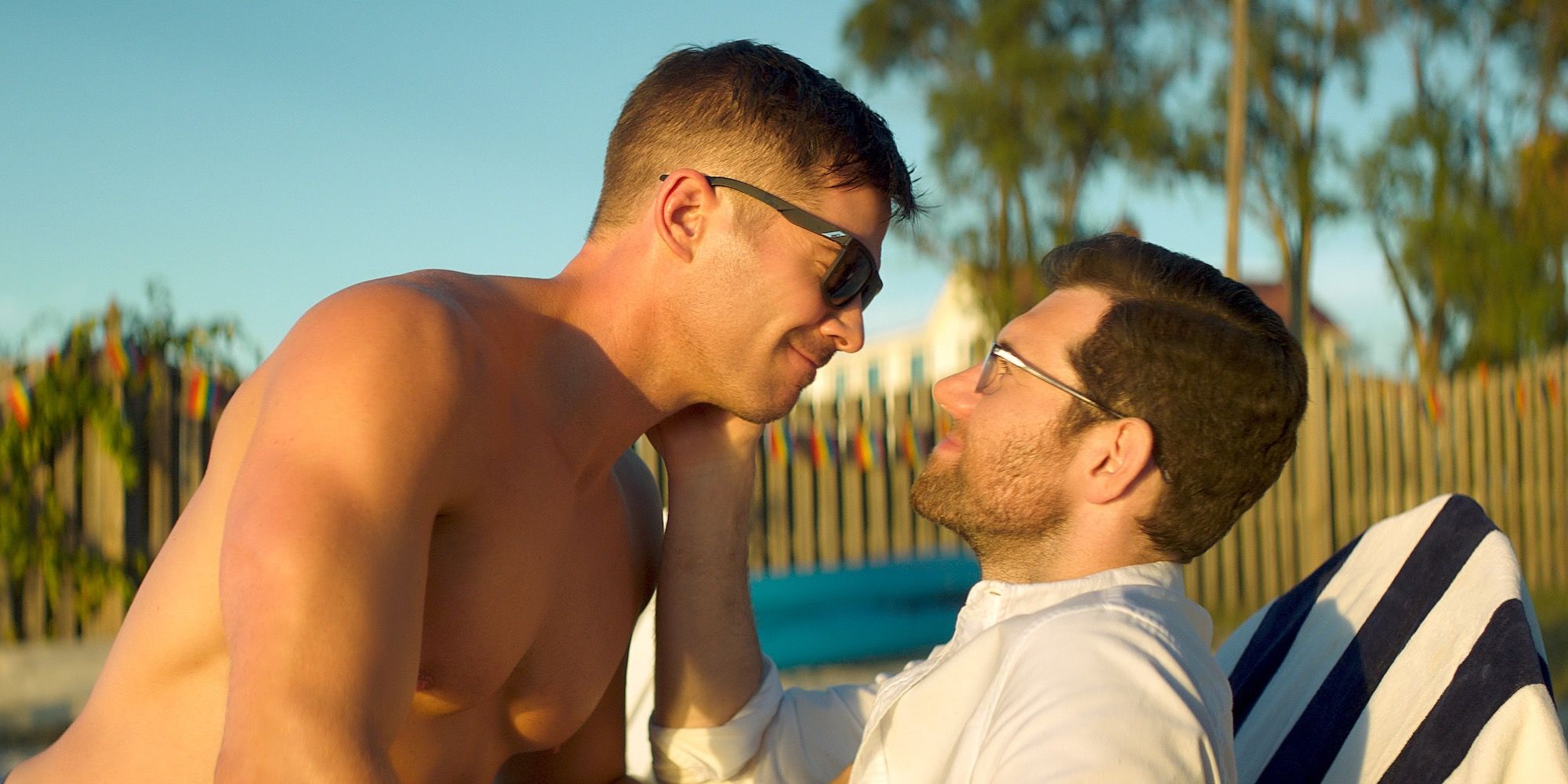Warning: Contains spoilers for Bros!
It might be the story of Bobby and Aaron falling in love, but there’s a surprising amount going on in Bros that might make the ending unclear for some. With the Bros movie, Universal Studios makes history as the first LGBTQ+ romantic comedy from a major studio. It follows in the footsteps of past queer romcoms like Hulu’s Happiest Season, but it also certainly takes the next step as well.
Bobby (Billy Eichner) and Aaron (Luke Macfarlane) are both sure they don’t want a relationship. Bobby is certain that his single life and random hookups are enough for him and Aaron is keen to keep things loose. However, in true romantic comedy style, the two fall for each other and by the end of Bros they agree to try making a relationship work.
While Bobby and Aaron’s relationship and struggles are front and center in Bros, their tale is on an equally important backdrop. Littered throughout the movie are references to not just queer life and experiences, but also to the importance of LGBTQ+ history and a focus on how that history has been erased for so long. All of this builds up to a nuanced rom-com finale, and LGBTQ+ history and experiences are key to understanding Bros’ ending.
What Does A 4 On The Kinsey Scale Mean?
In the Bros ending scenes, Aaron’s mother (Amanda Bearse), is seen exploring the LGBTQ+ History Museum that Bobby has been working on throughout the movie. One of the holographic characters, Ben Stiller cameoing as his Night at the Museum character, Larry Daley, informs her that she is a 4 on the Kinsey Scale. Aaron’s mother seems surprised by this, but doesn’t contest the matter.
The Kinsey Scale was developed by Alfred Kinsey and he first published on the concept in 1948. The scale ranges from 0, meaning “Exclusively heterosexual” to 6, indicating “Exclusively homosexual” while also including X for “No Socio-sexual contacts or reactions.” While 3 is the direct center, a 4 on the Kinsey Scale is relatively middle of the road, marked as “Predominantly homosexual, but more than incidentally heterosexual.” This suggests that in Bros Aaron’s mother is bi/pan+. The Kinsey Scale has fallen out of favor in more recent history as it focuses on binary terminology and fails to serve as a good representation for trans or non-binary people when measuring their sexuality or others' attraction to them. This is a fun nod to the fact that, like almost all the cast and crew for Bros, Amanda Bearse is LGBTQ+, specifically lesbian. However, more importantly, it highlights the structures that society assumes that led Aaron’s mother into a traditional marriage without seeming to have questioned her own identity before.
The LGBTQ+ Museum's Final Exhibit Explained
The final exhibit for the LGBTQ+ museum in Bros is a topic of much discussion throughout the movie with the board repeatedly arguing about it. While the finalized version of the exhibit as a whole contains a wealth of LGBTQ+ history that is lesser known, it also includes deliberate prods at culture. Following Aaron’s comments, they have included a series of holograms of straight actors playing the parts of iconic LGBTQ+ historical figures, mocking the longstanding matter of LGBTQ+ roles going to non-queer actors.
The final exhibit itself ends up not being about the sexuality of Abraham Lincoln, but instead seems to be somewhat absent. In a way, Bobby and Aaron become the final exhibit, as they show their affection in front of everyone. But importantly, they show their love in their own way and the fact that the community is not a monolith is the final part of the museum in Bros.
Why Do Bobby & Aaron Agree To Date For 3 Months?
In the Bros ending, it appears briefly to the audience, Aaron, and the crowd of spectators, that Bobby plans to propose to Aaron with the large ring he borrows from Tamara (Eve Lindley). However, he instead asks Aaron to date for three months and then “reevaluate.” This might seem strange, but it’s the perfect ending to a story about how queer relationships are their own story. While Bobby could have proposed in a classic rom-com style, it would have been fitting the mold of “Hallheart” movies with their gleefully LGBTQ+ endings. A shorter commitment and then a careful reevaluation is a better fit for both of the Bros characters and is more representative of the variety of experiences in the LGBTQ+ community.
What Bobby's "Love Is Not Love" Song Means
Written for Bros by Billy Eichner & Marc Shaiman, Bobby performs the song “Love Is Not Love” for Aaron in front of the museum. The song, performed in the style of Garth Brooks, might seem strange for a rom-com with the refrain that “Love Is Not Love” and references to many things that the couple have experienced that are not part of the traditional romantic comedy narrative. However, that is sort of the whole point of the song.
Bros’ “Love Is Not Love” riffs on other comments made by Bobby throughout the movie about how the idea that LGBTQ+ romance is exactly the same as cishet relationships isn’t true. Instead, he explains that it was effectively a marketing plot by the queer community to convince society to accept them, with the slogan “Love Is Love” serving as a major marker for that. “Love Is Not Love” as a repeating comment highlights the fact that LGBTQ+ love is different from “traditional” romances seen in rom-coms, but that it is who they are and that’s okay too.
The Real Meaning Of Bros' Ending
Much of the meaning of the Bros ending is encapsulated in the song “Love Is Not Love” and the build-up Bobby provides to that moment throughout the movie. However, it goes further than that as well. When it comes to romance, the LGBTQ+ experience is different to other relationships because the entire community and culture are different. But that doesn’t mean that it shouldn’t be accepted and it’s exactly why society needs movies like Bros to shine a light on an un-sanitized exploration of queer love and relationships.
But the movie goes further than that as highlighted in the Bros ending by the school trip that Aaron’s mother brings to the LGBTQ+ museum, acknowledging that Bobby was right about them not being too young. So much of queer history has been lost, forgotten, or deliberately erased, and Bros repeatedly nods to the fact that so much of the community and the oral history was lost due to the AIDS crisis. Bros not only explains some of that history, but also encourages people to explore it and highlights how much better it can be for people (children included) to be able to understand who they are and not have to go through the struggle of self-exploration alone. While it might feel like a fun queer rom-com at times, Bros’ ending leaves viewers with strong messages of the importance of acceptance, and a greater understanding of LGBTQ+ history.

